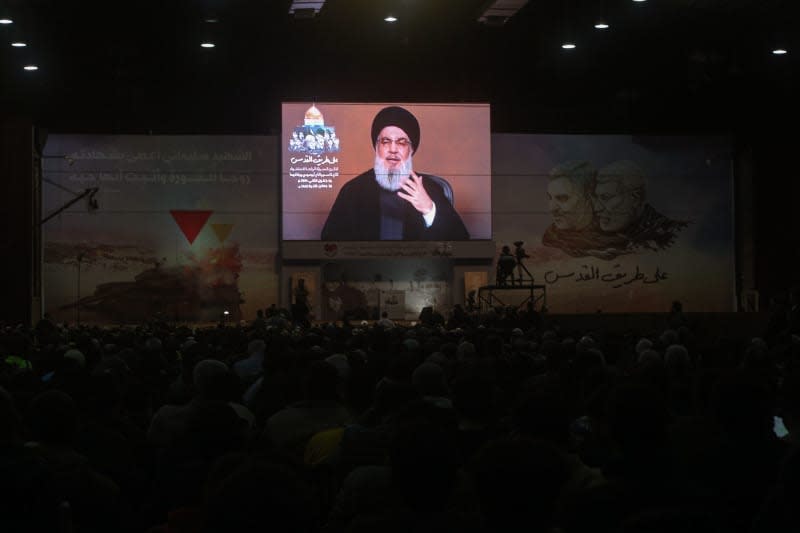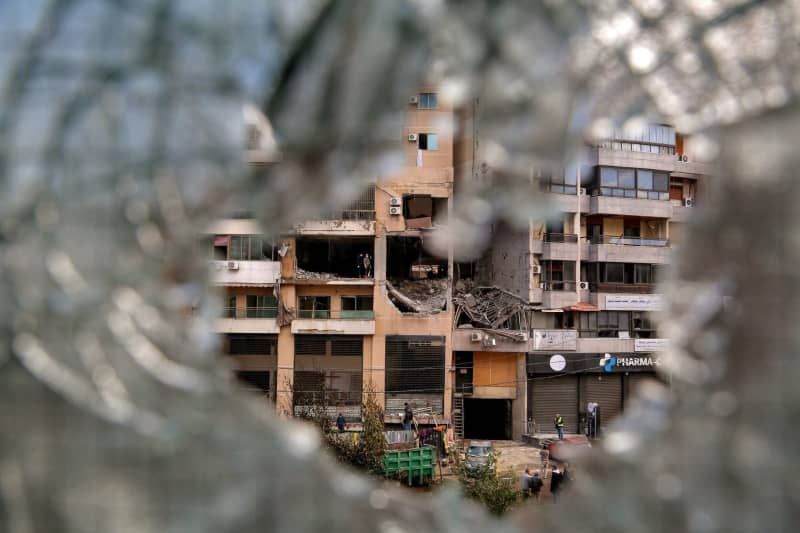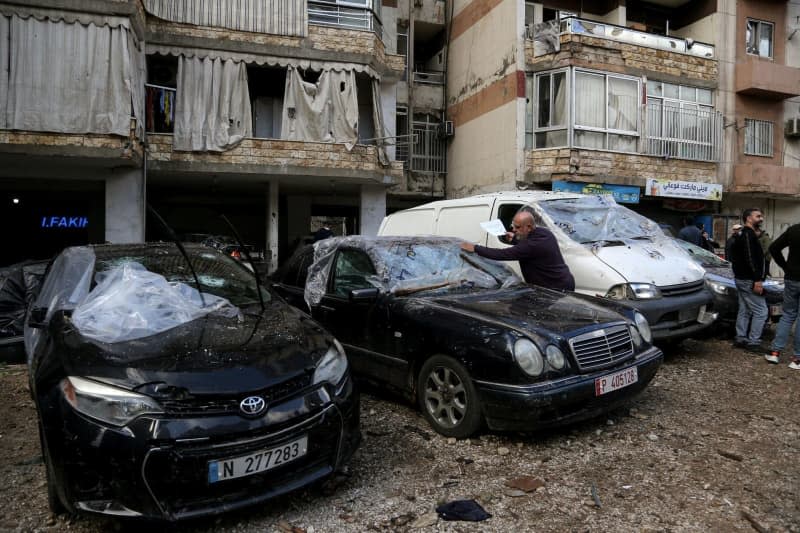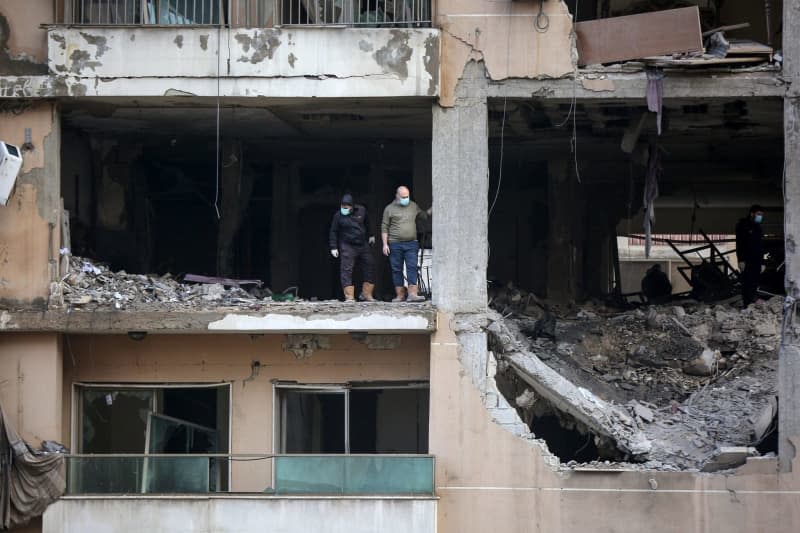Hezbollah chief dubs killing of Hamas leader 'blatant Israeli attack'

The killing of Hamas leader Saleh al-Arouri was a "blatant Israeli attack" on the southern suburbs of Beirut, the secretary general of the pro-Iranian Hezbollah movement, Hassan Nasrallah, said on Wednesday in a closely-watched address.
"Should the enemy [Israel] think of waging a war on Lebanon, we will not abide by any rules," Nasrallah said in a speech via video link during a rally to mark the fourth anniversary of the killing of the powerful Iranian general Qassem Soleimani by a US drone in Iraq in 2020.
He reiterated that the assassination of al-Arouri would not pass without punishment.
"Until now, we are fighting on the front with precise calculations. If the enemy launches a war on Lebanon, our fighting will be without ceilings, limits, rules and controls... Whoever thinks about war with us will regret it, as war with us is very, very costly," he said.
He added that Israel tried to project "an image of victory through the killing of al-Arouri."
Al-Arouri, the deputy head of Hamas' political bureau, was killed in an explosion in Lebanon's capital on Tuesday evening. Hamas blamed Israel. When asked, the Israeli army refused to comment on the killing.
Israel sees al-Arouri as the mastermind behind attacks in the West Bank.
Since the beginning of the Gaza war on October 7, there has been repeated shelling between Hezbollah and the Israeli military on the Lebanese-Israeli border. There have been deaths on both sides and fears are growing that the Gaza conflict could escalate.
The UN peacekeeping mission in Lebanon (UNIFIL) said it was concerned about the security situation in the country.
The UN mission, which has been monitoring the border area between Israel and Lebanon since 1978, called on all parties to cease their fire and urged restraint.
The Lebanese government said it was in talks with Hezbollah to avoid an escalation after the killing in in Beirut's southern suburbs, a stronghold of Hezbollah.
According to Hamas, which is allied with Hezbollah and is also supported by Iran, a total of seven people died, including two leaders from Hamas' armed wing.
Hezbollah staged at least three attacks on Israeli posts near the Lebanese border on Wednesday, triggering retaliatory shelling on southern Lebanon, Lebanese security sources and the Israeli army said.
The Israeli army also said they attacked terrorists in Lebanon and “Hezbollah’s terrorist infrastructure.”
Hezbollah said they attacked several Israeli posts near the Lebanese border. The group also mourned the loss of two additional members, raising the death toll among Hezbollah's fighters to 142 since October 7.
Following the killing of al-Arouri, the head of Israel's Mossad intelligence agency, David Barnea, hinted at Israel's involvement, according to a report.
"Any Arab mother should know that if their son was a partner to the slaughter of October 7, his blood is [on his own hands]," the Jerusalem Post quoted Barnea as saying during the funeral of the former Mossad chief Zvi Zamir on Wednesday.
The paper saw Barnea's comments as a "clear indication" of Israeli involvement in the targeted killing in Beirut of al-Arouri, but Barnea did not mention him by name.
Iran said that the killing would have consequences and blamed the United States for the rising tensions. Tehran also blamed its arch-enemy Israel for the alleged attack.
"The malicious activities of the terror machinery of this [Israeli] regime in other countries are a real threat to peace and security," Iran's Foreign Minister Hossein Amirabdollahian wrote on the platform X.
Following the killing, schools, universities, banks, restaurants and government offices in the West Bank were closed on Wednesday due to a general strike.
As the situation at the border escalates, Germany's Foreign Office called on citizens to leave Lebanon as quickly as possible.
Germans who are still in the country should register on the crisis preparedness list and leave the country "as quickly as possible," the ministry wrote on X. "An escalation on the border between Israel and Lebanon cannot be ruled out," it said after a meeting of the German government's crisis management team.
Meanwhile, as Israeli attacks on Gaza continue, at least 128 Palestinians were killed in the Gaza Strip in the past 24 hours, the Hamas-run Health Ministry said.
Around 261 other people were injured in a total of 10 attacks, the health authorities said.
Since the beginning of the war almost three months ago, a total of 22,313 people have been killed and 57,296 others injured, the authority said.
The figures cannot be independently verified. The ministry does not distinguish between civilians and armed members of terrorist organizations.
The war was triggered by the worst massacre in Israel's history, carried out by terrorists from Hamas and other extremist Palestinian organizations on October 7. Roughly 1,200 people were murdered and 240 were taken hostage in southern Israel.




